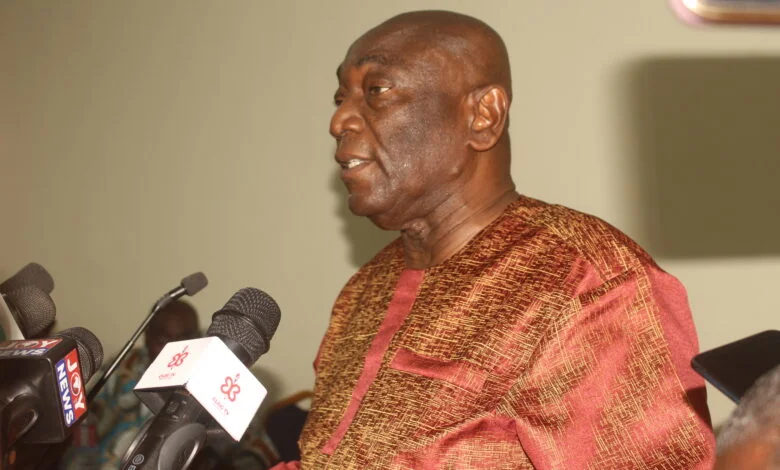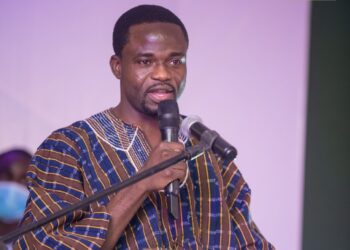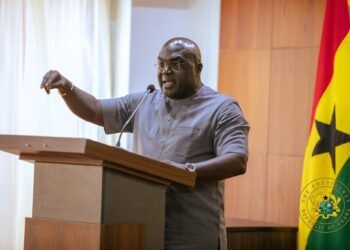The General Secretary of the Trades Union Congress (TUC), Joshua Ansah, has issued a strong statement advocating for a sweeping reform of the Electricity Company of Ghana (ECG), insisting that political interference is a key impediment to the utility’s performance.
According to him, the solution lies not in privatization, but in professionalizing leadership and strengthening regulatory oversight.
“To bear on the operations of ECG and NEDCO this will provide the necessary checks and balances for improved efficiency,” he stated, underscoring the importance of independent oversight.
Ansah emphasized that ECG and the Northern Electricity Distribution Company (NEDCO) can be transformed into efficient and profitable entities if structural barriers such as partisan meddling are addressed.
At a recent policy engagement, he presented a comprehensive set of recommendations aimed at restoring ECG’s operational integrity and profitability.
One of the core proposals advanced by the TUC is a call for the Office of the President to relinquish the power of board appointments in the electricity sector.
“We also recommend that the presidency should delegate board appointments to the minister responsible for the sector”
Joshua Ansah, General Secretary of TUC
Ansah argued that vesting this responsibility in the minister responsible for energy will greatly enhance transparency and accountability.
According to the TUC, such a step would remove the political shielding that often insulates underperforming executives and allows merit-based selections to take root.
Performance Benchmarks
Ansah called for the imposition of strict targets on the Managing Director of ECG.
“The MD of ECG must be given clear deliverables and must be held to a straight account on those deliverables.
“PURC and SIGA are expected to create, monitor, and ensure the realization of such deliverables”
Joshua Ansah, General Secretary of TUC
He emphasized that ECG’s success depends on enforcing a high standard of accountability at the executive level and ensuring that managers are answerable for their results.
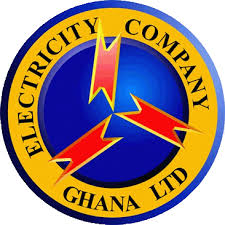
For this, he emphasised the need for regulatory bodies to assume an active role in monitoring performance of the State Owned Enterprise (SOE).
“The position of the energy minister must be strengthened regarding the SOEs in the energy sector. Stated differently, the ministerial oversight of critical decisions must prevail in the sector”
Joshua Ansah, General Secretary of TUC
The TUC General Secretary advocated for this bolstered oversight powers for the Minister of Energy, insisting that key sector decisions must not be diluted or overridden by external forces or actors.
However the TUC believes that accountability within the sector should extend beyond institutions to include individuals in key leadership positions.
“The sanctions regime under the PURC Act needs to be reformed to make it possible for PURC to sanction individuals holding key positions in the energy sector for the dereliction of responsibility and or abuse of authority”
Joshua Ansah, General Secretary of TUC
Ansah called for these amendments with firm conviction that they would reduce incidences of ECG officials misconducting themselves or neglecting duties to the detriment of the Enterprise and the nation as a whole.
He also urged a repositioning of ECG for ongoing and future power projects in the country.
“The Ministry of Energy must reform the shift to make ECG a key partner in the implementation of delivery of the projects”
Joshua Ansah, General Secretary of TUC
In line with his broader reform agenda, Ansah also addressed the procurement process for new power generation capacity.
“Procurement of electricity generation capacity must be done through open competitive tender. Duration tariffs must also be renegotiated in Ghana cedis and not in dollars”
Joshua Ansah, General Secretary of TUC
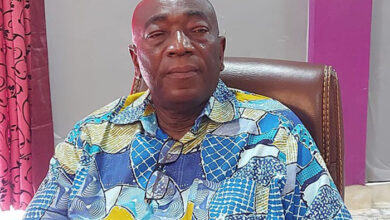
Rejecting Privatization
Wrapping up his statement, Ansah reaffirmed the TUC’s opposition to privatization as a solution to ECG’s challenges.
“ECG remains a critical national asset, essential for driving Ghana’s economic development, ensuring national sovereignty and energy security, and fostering social equity.
“While the challenges facing ECG are significant, ranging from political interference to operational inefficiencies, privatization is not a viable or sustainable solution”
Joshua Ansah, General Secretary of TUC
Ansah strongly cautioned that the current challenges, while severe, should not justify the handover of state infrastructure to private interests.
He stressed that with the right leadership, oversight, and strategic policy direction, ECG can stage a comeback and meet Ghana’s energy needs effectively.
The union’s call adds to growing public discourse demanding reforms that prioritise national interest over political convenience in Ghana’s energy sector.
READ MORE: BoG Charts New Course with Risk-Sensitive Regulation Framework

